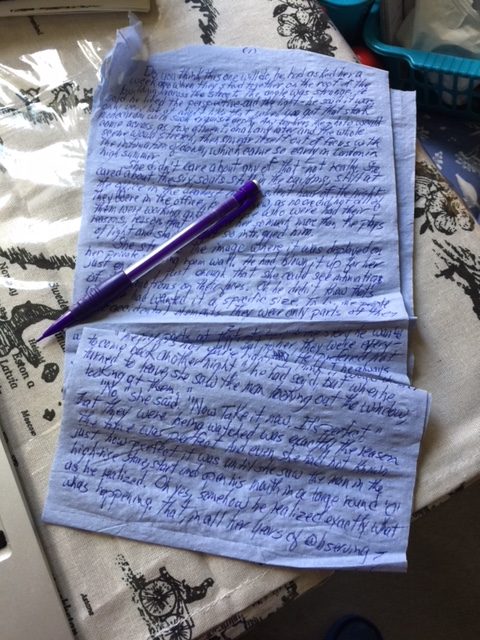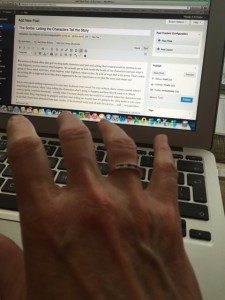(From the Archives)
I don’t know about you, but I don’t feel like it’s a proper sex scene, or even a proper PG love scene, unless there’s some serious lip action. Here are a few fun factoids about the lip lock that I discovered while I was writing my post for my Sunday Snog. They are from Psychology Today, How Stuff Worksand Random Facts:
- The science of kissing is called philematology.
- Lips are 100 times more sensitive than the tips of the fingers. They’re even more sensitive that the genitals!
- The most important muscle in kissing is the orbicularis oris, whichallows the lips to “pucker.”
- French kissing involves 34 muscles in the face, while a pucker kiss involves just two.
- A nice romantic kiss burns 2-3 calories, while a hot sizzler can burn off five or even more.
- The mucus membranes inside the mouth are permeable to hormones. Through open-mouth kissing, men introduced testosterone into a woman’s mouth, the absorption of which increases arousal and the likelihood of rumpy pumpy.
- Apparently men like it wet and sloppy while women like it long and lingering.
- While we Western folk do lip service, some cultures do nose service, smelling for that romantic, sexual connection. Very mammalian, if you ask me, and who doesn’t love a good dose of pheromonal yumminess?
- Then there’s good old fashion bonding. It’s no secret that kissing someone you like increases closeness.
While all that’s interesting to know, what really intrigues me about kisses is how something seemingly so fragile can become so mind-blowingly powerful when lips, tongue, a whisp of breath, perhaps a nip of teeth are applied in the right proportion at the right time on the right part of the anatomy. And with the size of the human body in proportion to the mouth, the possibilities for a delicious outcome are only as limited as the imagination.
One theory is that kissing evolved from the act of mothers premasticating food for their infants, back in the pre-baby food days, and then literally kissing it into their mouths. Birds still do that. The sharing of food mouth to mouth is also a courtship ritual, and birds aren’t the only critters who do that. Even with no food involved the tasting, touching and sniffing of mouths of possible mates, or even as an act of submission, is very much a part of the animal kingdom.
The sharing of food is one of the most basic functions, the function that kept us all alive when we were too small to care for ourselves. The mouth is that magical place where something from the outside world is ingested and becomes a part of our inside world, giving us energy and strength. Not only is the mouth the receptacle for food, it’s the passage for oxygen. Pretty much all that has to pass into the body to sustain life passes through the mouth. I find it fascinating that the kiss, one of the most basic elements in Western mating ritual and romance, should involve such a live-giving part of our anatomy.
But the mouth does more than just allow for the intake of the sustenance we need. The mouth allows us voice. I doubt there are many people who appreciate that quite as much as we writers, who love words and the power they give us. And how can I think about the power of words without thinking about the power of words in song and poetry? Our mouths connect us in language, in thought, in the courtship of words that allow us to know and understand each other before those mouths take us to that intimate place of the kiss. And when that kiss becomes a part of our sexual experience, it’s that mouth, that tongue, those lips that allow us to say what we like and how we like it; that allow us to talk dirty; that allow us to vocalize our arousal; that allow us to laugh or tease our way to deeper intimacy.
The fact that the mouth offers all those wonderful, life-giving, life enhancing things, AND can kiss, makes it one of my very favourite parts of the body
“If I profane with my unworthiest hand
This holy shrine, the gentle fine is this:
My lips, two blushing pilgrims, ready stand
To smooth that rough touch with a tender kiss.”
Romeo and Juliet Act 1 Scene 5
William Shakespeare



 now on my blog, as it unfolds, I am doing a lot of dreaming. In fact, I must approach the Guardian’s prison inside of Susan through a dream, and even from there, I am never sure I am in a nightmare I can’t wake up from or a dream I want to linger in.
now on my blog, as it unfolds, I am doing a lot of dreaming. In fact, I must approach the Guardian’s prison inside of Susan through a dream, and even from there, I am never sure I am in a nightmare I can’t wake up from or a dream I want to linger in.

 When I lived in Croatia a hundred years ago, I spent three weeks every summer camping on the Adriatic near Pula. At the campsite where I stayed, there was a small store and a restaurant that had live music every night. There were several buildings with showers and toilets. That was the extent of the place.
When I lived in Croatia a hundred years ago, I spent three weeks every summer camping on the Adriatic near Pula. At the campsite where I stayed, there was a small store and a restaurant that had live music every night. There were several buildings with showers and toilets. That was the extent of the place.